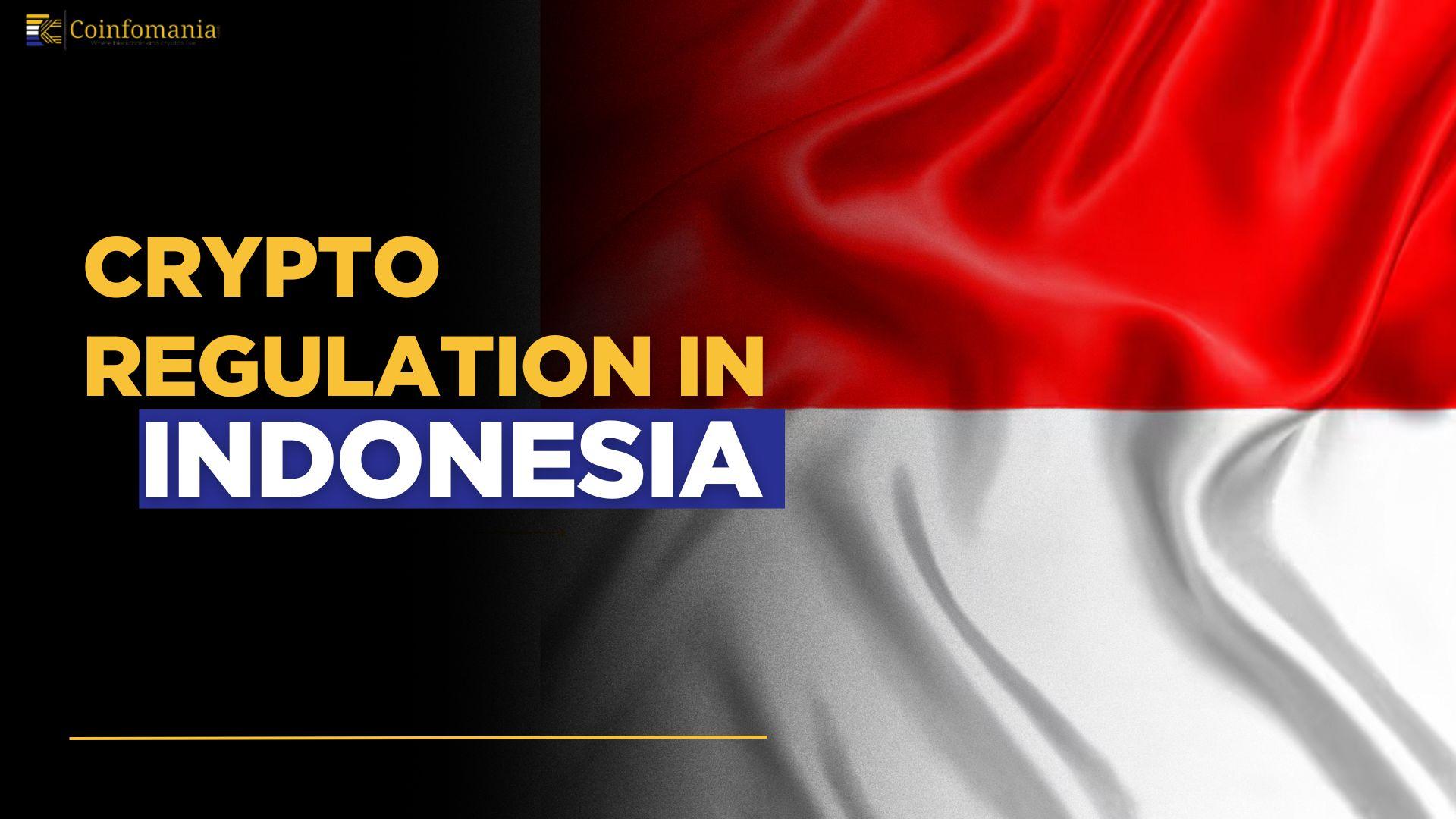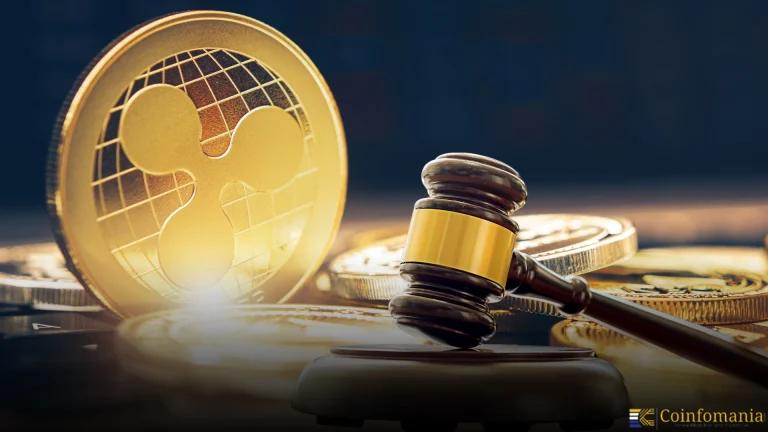Cryptocurrency Regulations in Indonesia
Indonesia is developing into a crucial actor in Southeast Asia’s crypto scene, employing a watchful approach while the crypto space is gaining popularity. Although the government maintains strict control regarding the use of digital assets as a means of payment, it provides the freedom to trade them as commodities, allowing for the regulated investment and […]

Indonesia is developing into a crucial actor in Southeast Asia’s crypto scene, employing a watchful approach while the crypto space is gaining popularity. Although the government maintains strict control regarding the use of digital assets as a means of payment, it provides the freedom to trade them as commodities, allowing for the regulated investment and invention that others may seek. The nation, meanwhile, shows a booming interest in digital assets as it manoeuvres a tightrope walk of regulations: with almost 18 million registered crypto users by 2023.
With Bappebti’s oversight to pass to the Financial Services Authority (OJK) in 2025, stakeholders need to be more compliant with and adapt to stricter policies that aim to ensure consumer safety and responsible blockchain development.
Historical Context
Indonesia’s first reaction to cryptocurrencies was one of caution. However, in 2017, Bank Indonesia announced a prohibition on using cryptocurrencies as payment tools due to their volatility, problems with financial stability, as well as the risks of money laundering and financing terrorism.
Later on in 2018, Indonesia took a more nuanced approach. Bappebti reclassified crypto assets as tradable commodities rather than an outright ban, and futures trading was allowed as long as very strict regulations were adhered to. According to this classification, Indonesia became one of the few countries that enable trading while banning crypto payments.
Notable regulatory milestones include:
In 2019, Bappebti released detailed operational and trading guidelines for crypto exchanges.
In 2021–2022, developing trading standards made Regulation No. 8/2021 become Regulation No. 13/2022.
And already on January 12, 2023, Law No. 4/2023 has been legislated that imposes the oversight of Bappebti to be handed over to the OJK by January 12, 2025.
Less than two years ago, Indonesia rejected blockchain technology but shifted to structured approval of the cryptocurrency, which depicts Indonesia’s approach to allowing crypto innovation while being under financial stability.
Regulatory Framework
Key Regulatory Authorities
Currently, Bappebti controls cryptocurrency as a commodity under the purview of the Ministry of Trade. Controls the exchanges, trading treatment, and licensing.
It will be taken over in 2025 by OJK (Financial Services Authority) in its effort to have a more integrated financial regulatory regime.
Monetary policy: Bank Indonesia is responsible for monetary policy and conducts other fields of supervision, macroeconomics, among others, for monitoring payment systems.
Licensing and Registration
Crypto Asset Physical Traders registration obligation is applicable for crypto businesses. Key requirements include:
- Minimum paid-up capital: IDR 50 billion
- Minimum equity: IDR 40 billion
- 24-month business plan
- PSE accreditation: From the Ministry of Communication and IT
Only such exchanges can legally operate. Currently, there are 32 registered crypto exchanges in Indonesia, such as Tokocrypto, Indodax, Pintu, Upbit Indonesia, and Reku until December 2023.
AML & KYC Requirements
Indonesia enforces strict AML/KYC rules:
- Mandatory appointment of a Money Laundering Reporting Officer (MLRO)
- Customer Due Diligence (CDD) for both individuals and legal entities
- Sanctions screening, transaction monitoring, and risk assessments
- Compliance with the Travel Rule for transactions ≥ USD 1,000
- It is obligatory to maintain record keeping and suspicious activity reporting.
CDD Requirements include:
- For individuals, only the full name, government-issued ID, address, nationality, employment and biometric data are needed.
- Legal name, incorporation data, license information, business activities, authorized signatories for entities
Taxation
Crypto is subject to taxation:
- Transactions: 0.1% income tax + 0.11% value-added tax (VAT)
- Mining: 1.1% VAT + 0.1% income tax
Regulation of ICOs and STOs
Under the rules of commodity trading, Initial Coin Offerings (ICOs) and Security Token Offerings (STOs) are regulated and require Bappebti’s approval. However, there is no standalone framework for securities tokens or DeFi-specific regulations right now, which can be solved by the transition to OJK.
Indonesia Crypto Policies
Currently, crypto is allowed as an investment and trading commodity by Indonesia, whereas it is not allowed as a payment method. The banks and payment processors are not allowed to process crypto-related payments. The rupiah is the only currency in use.
Crypto mining is not banned, yet it is not regulated as well. There are no mining-specific rules, but in all other respects, regulators generally maintain a neutral position on mining, and mining is subject to the same laws (e.g. AML, taxation, etc.) as other businesses.
July 2023 saw the launch of national crypto exchange, which is a landmark development.
- PT Bursa Komoditi Nusantara (exchange)
- PT Kliring Berjangka Indonesia (clearing house)
- PT Tennet Depository Indonesia (depository)
The creation of such government-supported infrastructure can be perceived as a step toward structured market growth, as it guarantees transparency and centralized oversight.
On the other hand, Bank Indonesia’s Project Garuda, a central bank digital currency or CBDC initiative, is in the research phase. In November 2022, a whitepaper was released but there has been no major update since April 2025.
Penalties
Failure to comply can result in administrative fines and even revocation of license or criminal prosecution for operations without regulatory approval, or violation of laws on AML and CFT.
Indonesia’s Approach to Crypto Innovation
Some of its ASEAN neighbours, however, do operate a formal regulatory sandbox but Indonesia does not. However, innovation is controlled through registered exchanges and national infrastructure, of which it has a structured approach.
Usage of Crypto is rising in the business industry with a growing trend of adoption by retail investors, fintech platforms and remittance services. There will be over 17.91 million registered investors by late 2023, which only strengthens its acceptance.
Blockchain initiatives include:
- Project Garuda (CBDC)
- Crypto asset listings of Bappebti (501 approved by 2023)
- Blockchain-based tracking and auditing tools are to be integrated in the financial sector.
Although usage as a currency might still be very limited, the fact that at all this activity grew so naturally in a financial context signals plenty of interest in the tech behind crypto.
Notable Challenges and Issues
There is no significant regional inconsistency in Indonesia; rather, the entire country has uniform national regulations. Yet executives and regulators are struggling to enforce rules in DeFi platforms, anonymous wallets or cross-border peer-to-peer transactions.
Crypto still has mixed public opinion. User adoption is increasing, but so has the trust erosion that has resulted from scams and fraud, including a high-profile app-based … This has led to a higher suspicion, particularly amongst the older and risk-averse demographics.
However, interest still builds amongst the younger, tech-savvy population as regulations improve investor protections.
An Outlook of Future Trends of the Key Regulations
The Crypto Asset Committee for monitoring the compliance of the industry and leading to the transfer of regulatory authority to the Financial Services Authority (OJK) in January 2025, was formed in January 2024 by Bappebti.
In this case, in the near future, the regulations under OJK will be more strict and comprehensive, as follows:
- Stronger investor protection
- Closer oversight of DeFi and stablecoins
- Stricter compliance with FATF recommendations
Being a new member of FATF (began in October 2023 as the 40th member), Indonesia might follow global standards better, shaping not only the domestic crypto market but also cross-border crypto trade in the ASEAN area.
While this may initially slow innovation, the long-term outlook favours greater stability and institutional confidence.
Conclusion
Indonesia’s laws on crypto are moderately restrictive and are changing quickly. Currently, major changes in 2025 are expected because the OJK will become the dominator and the trading and investor protection framework focuses on regulated trading and investor safety.
This represents a dynamic market where businesses, crypto enthusiasts and investors in Southeast Asia can take their chances and remain compliant with this changing legal environment. The development of regulations in the crypto space of Indonesia is an important thing to look after.
Frequently Asked Questions (FAQs)
1. Is cryptocurrency legal in Indonesia?
For trading, cryptocurrencies are legal in Indonesia only. They are thought of as currency, commodity, not legal tender.
2. Is Bitcoin and other cryptocurrencies being used for paying goods and services in Indonesia?
No, because cryptocurrency is not allowed as a type of payment. Only the Indonesian Rupiah is recognized as sort of a legal tender.
3. Who regulates crypto in Indonesia?
Since January 12, 2025, the regulatory body for crypto in Indonesia has been the Financial Services Authority (OJK). The oversight was previously placed under the Commodity Futures Trading Regulatory Agency (Bappebti). Monetary policy issues are always supervised by Bank Indonesia.
4. What are the crypto exchange licensing requirements in Indonesia?
The exchanges must register with Bappebti, have capital requirements (IDR 50bn paid-up capital, IDR 40bn equity), present a business plan and obtain accreditation from the Ministry of Communication and IT as a PSE.
5. Are cryptocurrencies taxed on transactions?
Yes. Transactions are subject to:
0.1% income tax
0.11% VAT
1.1 VAT and 0.1 income tax are the rates imposed on the said industry.
6. Has crypto mining become illegal in Indonesia?
Although mining is not specifically banned or regulated, recent changes in the tax and business regimes make it unfeasible for it to be profitable.
7. Which crypto businesses are subject to AML and KYC requirements?
AML/CFT compliance must be strictly implemented by the crypto platforms.
- Customer Due Diligence (CDD)
- Appointment of a Money Laundering Reporting Officer (MLRO)
- Transaction monitoring and sanctions screening
- Compliance with the Travel Rule for transactions ≥ USD 1,000
8. What is Indonesia’s national crypto exchange, and how is it operating?
Indonesia’s national crypto exchange was launched in 2023 and includes:
- PT Bursa Komoditi Nusantara (Exchange)
- Clearing House PT Kliring Berjangka Indonesia (KBI)
- PT Tennet Depository Indonesia (Custody)
It proposes to provide transparency in trading as well as standardize trading.
9. How are penalties imposed on violators of the crypto regulations in Indonesia?
For failure to comply, administrators can impose administrative sanctions, revoke the license, impose financial penalties, or, in more severe cases, file criminal charges, particularly against unlicensed operations or against those violating AML laws.
10. What then is the outlook of crypto regulation in Indonesia?
However, the regulations are expected to become stronger and more directed towards investors; overtaking by OJK in 2025 is bound to affect innovation but also strengthen market stability and gain public trust.
Follow us on Google News
Get the latest crypto insights and updates.
Related Posts

Ripple Highlights Custody as Key to $18.9T Tokenized Assets by 2033
Shweta Chakrawarty
Author

Hong Kong SFC Issues New Custody Rules for Crypto Platforms
Shweta Chakrawarty
Author

South Korea and Vietnam eye $150B trade despite Trump tariff
Shweta Chakrawarty
Author